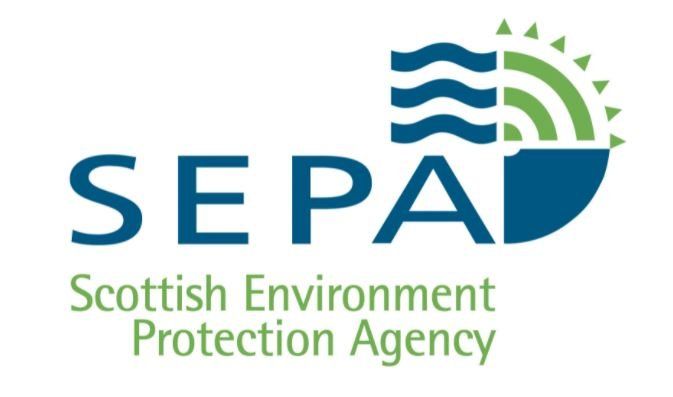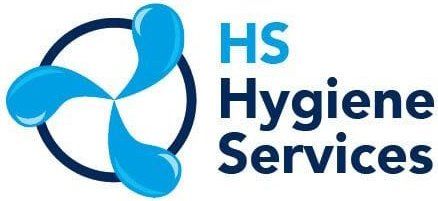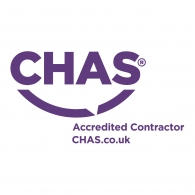Legislation and regulations
At HS Hygiene Services we take extra care to ensure that our business follows best practice, as well as the standard legislation and regulations. Our staff take regular training courses to ensure that they meet and deliver TR19 standards within your business. Here are a few of the legislation regulations we adhere to:
Cleaning Intervals - Kitchen Extraction Systems
Loss Prevention Council Cooking Equipment RC16B
• Ductwork and extraction motor. Cleaning should take place at intervals not exceeding 12 months.
HVCA TR/19 Guide to Good Practice. Cleanliness of Ventilation Systems.
Suggested typical cleaning intervals:
• Heavy Use (12-16Hours per day) – 3 Months
• Moderate Use (6-12 Hours per day) – 6 Months
• Light Use (2-6 Hours per day) – Annually
Workplace, Health, Safety and Welfare Regulations 1992
The workplace, and the equipment and devices mentioned in these Regulations, should be maintained in an efficient state, in efficient working order and in good repair.
Regulation 5
Mechanical ventilation systems shall be maintained (including cleaned as appropriate) in an efficient state, in efficient working order and in good repair.
Regulation 6
Mechanical ventilation systems (including air-conditioning systems) should be regularly and adequately cleaned. They should also be properly tested and maintained to ensure that they are kept clean and free from anything which may contaminate the air.
Condition monitoring takes the surprise out of ventilation clean requirements and helps avoid expensive call out/shut down cleans
BS: 157080
This European Standard applies to both new and existing ventilation and air conditioning systems and specifies the assessment criteria of cleanliness, cleaning procedures of these systems, and the validation of the effectiveness of cleaning applies also to products, which conform to EN 1505,EN 1506, EN 13053, EN 13180 and EN 13403, used in air conditioning and ventilation systems for human occupancy defined in the scope of CEN/TC 156. This European Standard does not apply to installations for industrial processes. Cleanliness of ventilation systems is considered important for human comfort and health, energy consumption, system service life and for cleanliness of operations or processes carried out in the ventilated area. Considerations for change of component as an alternative for cleaning (e.g. in case of flexible ducts and air filters) are also included.
HVCA TR19
This guide is an amalgamation of two publications DWTM2 the guide to internal cleanliness of new ductwork installations and an upgraded version of TR17 the original handbook to good practice for the cleanliness of ventilation systems. It includes further improvements to best practice standards with particular reference to kitchen extract systems. At a time when indoor air quality expectations from building occupiers are more demanding than ever TR19 is a must have reference material. This document is due for revision later in 2014.
Legislation
The Health and Safety at Work etc Act 1974, lays down that: –
“Employers and Persons concerned with premises owe the common duty of care both to employees and others who may use or visit the premises”
Section 2 (2) (e)
“Requires that you as an employer, provide and maintain a working environment that is , so far as is reasonably practicable, safe and without risk to health.”
Corporate Manslaughter & Corporate Homicide Act 2007
Guidance covering licensed asbestos removal and the sampling of asbestos-containing materials. Addressed to asbestos analysts and consultants, occupational hygienists, safety officers and other technicians. Also useful to asbestos removal contractors and supervisors, plus employers, building owners and property and estate management. With details of the revised analytical method for evaluation of fibres in air, (amendments to the European Worker Protection Directive, implemented in 2006, replaced the European Reference Method MDHS39/4 with the World Health Organisation standard). In addition to general issues, such as training needs and protective equipment, there are detailed considerations of precision matters such as sampling/analysis and decontamination procedures. Glossary of industry acronyms included. HSG 248 is due for revision late in 2013 to take into account the proposed combining of L127 & L143.
The Regulatory (Fire Safety) Order 2006
Since April 06 it has been an offence if systems are not maintained from a fire risk prospective and in the event of personnel injury or death from a fire associated with a poorly maintained system (section 17 of the RRO), charges of corporate liability or manslaughter may be brought against the kitchen operator (responsible person). For compliance with this regulation, Health and Safety Executive, Environmental Health Officers and Fire Inspectors will look for a maintenance routine that includes regular inspection of all ventilation systems to enclosed spaces. They will expect to see logs of the results of these inspections. Inspection frequency will vary accordingly to age and type of system: location and use, the results of the initial survey. Any assumptions and conclusions made should be documented and filed.
The need for cleaning will be determined by the initial inspection, risk assessments and frequency by the on-going inspections. The definition of ‘Clean’ may be taken as visually clean depending on individual circumstances.
HTM 03-31
The Department of Health Technical Memorandum 03-01: Specialised ventilation for healthcare premises Part B : Operational management and performance verification has introduced new practices for the management of healthcare ventilation systems. Critical care systems are now to be inspected on a quarterly basis and all systems are to be inspected on an annual basis. Findings should be recorded and areas with visible dirt or deposits should be cleaned.
Fire Hazards (from dirty ducts)
Grease contaminated kitchen extract ducts represent an increased fire hazard to properties. In recent times, wealth generation has seen a rapid increase in the number of restaurants in the U.K. However, this increase has also brought with it a corresponding increase in serious restaurant fires. This is because of unprecedented grease accumulation in extract ducts. Insurance companies are rapidly getting tired of paying out enormous sums of money due to large scale ductwork fires and are now frequently refusing cover unless clients meet standard ductwork cleaning procedures.
Why clean ductwork:
- 24,000 accidental fires in non-domestic buildings each year.
- 25% are attributed to cooking appliances.
- 80% of kitchen extract ducts are never cleaned.
- Insurance firms will not pay out if not cleaned.
- Corporate Manslaughter Act 2007 – unlimited fines and imprisonment.
- Insurance payouts for fires last year – £65m.
- Fast food outlet in Salford fined 13k for FRO breaches.
- Concern over the quality of air we breathe, especially when supplied through air conditioning systems.
- Air conditioning systems will invariably build up debris.
- Worst case scenarios are vermin infestation or damp conditions that create breeding grounds for bacteria.
- Arise because of neglect i.e. filters wrongly changed, missing vermin screens, faulty fan units, natural degradation.
- Under COSHH regulations, Euro directives and the Health and Safety Executive it is your responsibility to ensure the health and safety of occupiers; whether visitors, workers or tenants.
- Every time you look at that dirty grille or diffuser, remember, you are breathing in that excess dirt.
- In rare cases bacteria can be found in harmful quantities. Streptococcus, Pneumonia and Legionella can all breed in ductwork which can lead to infection.
- These can cause dehydration, fever and flu-like symptoms and lead to infections in open wounds and even Pneumonia type infections, which can be fatal.
Annual insurance losses resulting from fires that are caused by dirty extract ducts have risen in the past two years to £65M according to statistics provided by the Association of British Insurers. We all have a duty to safeguard life, property and the environment.
The current UK market is growing through our membership of the European Parliament and it’s requirements to fulfil an annual inspection/clean of ventilation hygiene systems.




